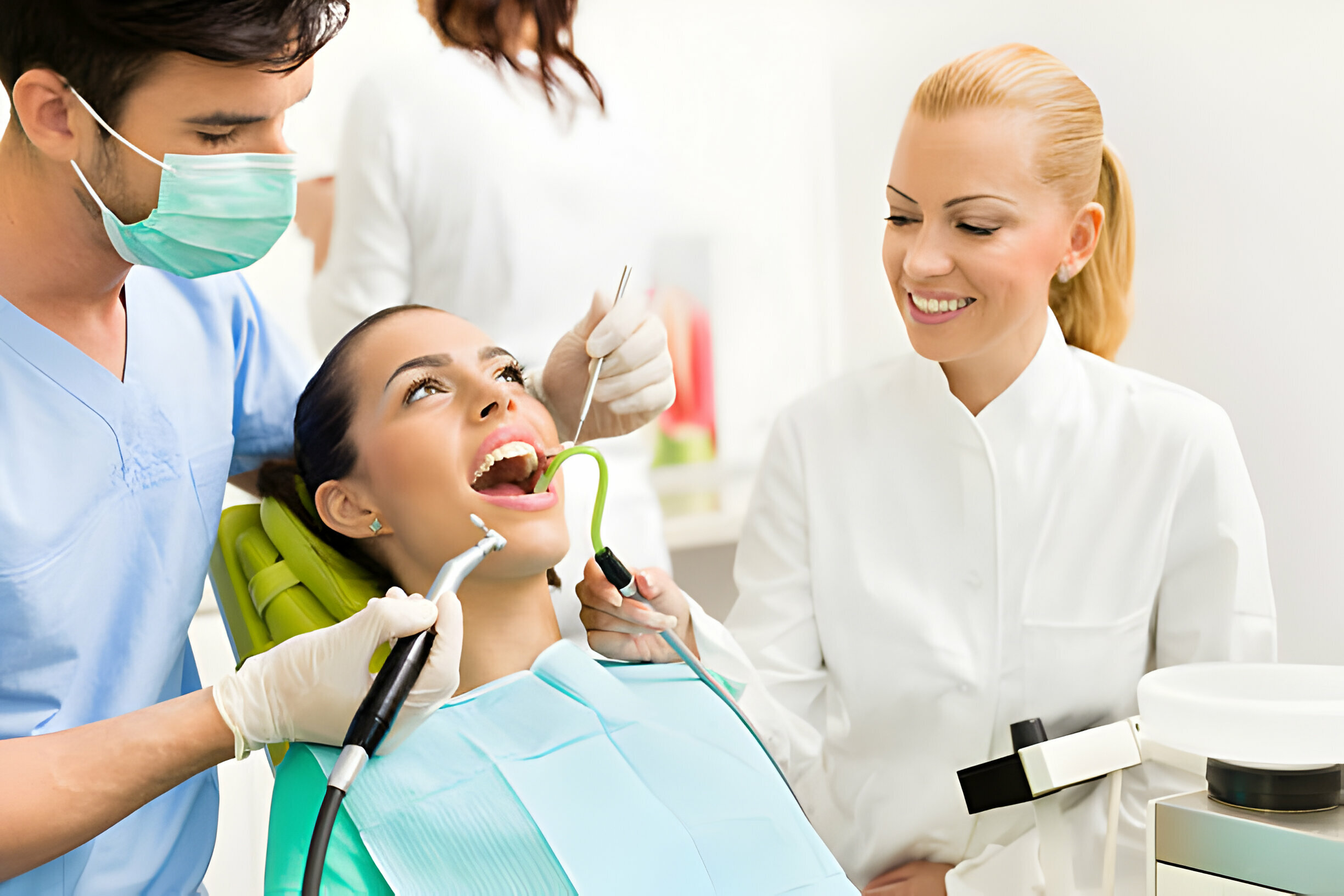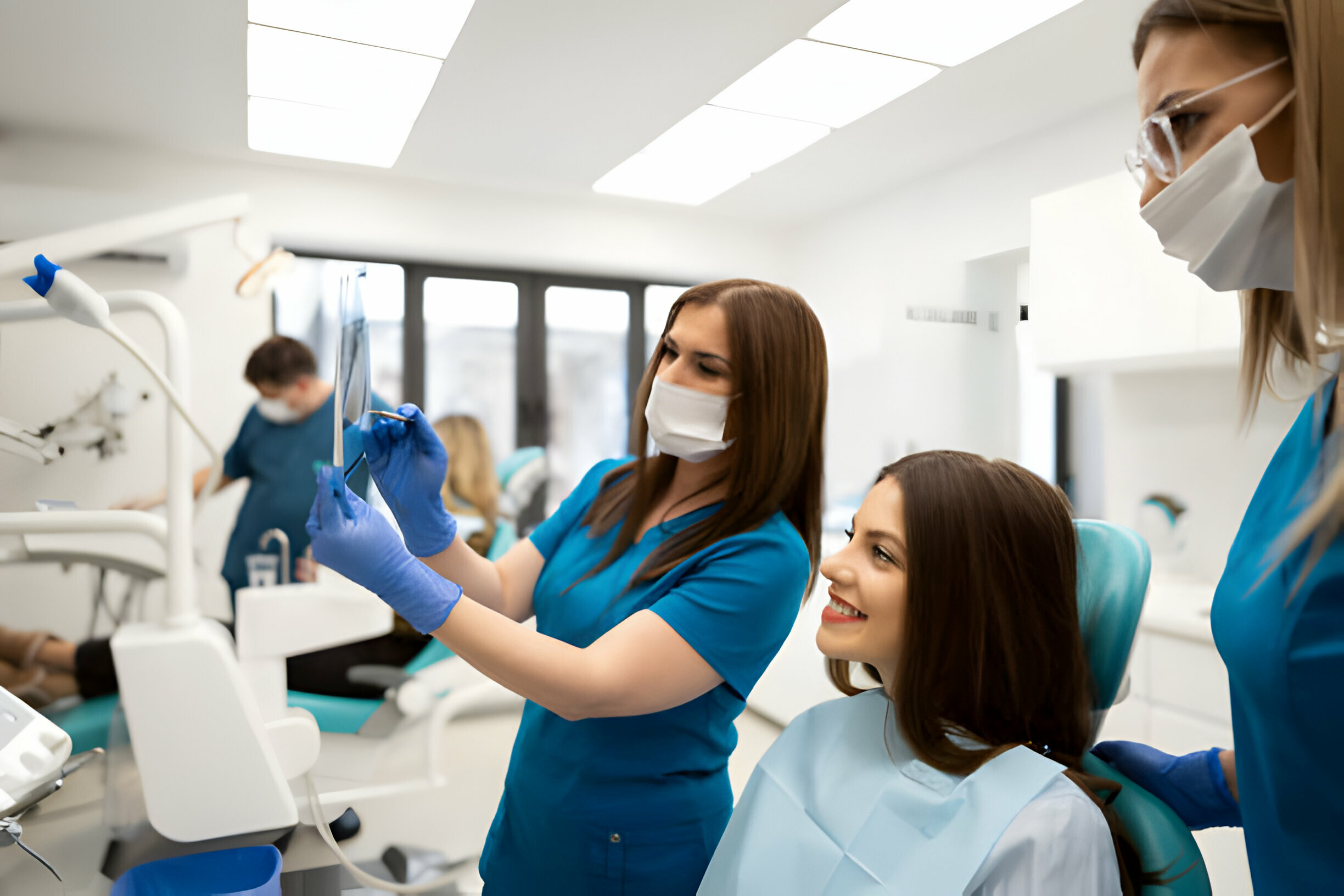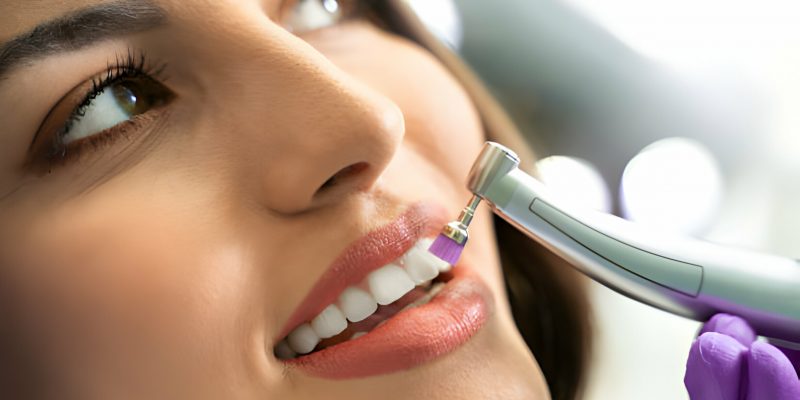Summary:
Everyone wants to have strong, healthy teeth, but not everyone wants to schedule frequent checkups. Studies suggest only 22.1% of adults visited dentists for regular cleanings and good oral hygiene to maintain beautiful teeth.
But how do you maintain your oral health in a busy lifestyle? In the following sections, let’s find out as we uncover the secrets to a healthy smile.

In the following sections, we understand:
- The Process of Complete Dental Cleaning
- Importance of Professional Teeth Cleaning
- Do You Need Frequent Dental Cleanings?
- The Oral Cleaning Procedure Explained!
- Risks Associated With Oral Cleanup
- Recovery and Outlook
Continue reading as we understand more about the methodology in the following sections.
The Process of Complete Dental Cleaning
A complete dental cleaning, or preventative care, is a comprehensive operation by a professional to remove plaque, tartar, and stains from your teeth. Scaling removes plaque and tartar accumulation from above and below the border of the gums; polishing makes the teeth smooth and shining, and flossing cleans the spaces between the teeth.
They may also provide other preventive services during the same appointment, such as fluoride treatments and sealants for the teeth. If you have dental phobias or anxieties, speak with your dentist at Cherokee Family Dental.
Many clinics provide sedation dentistry services to keep you comfortable and relaxed throughout your visit.
Importance of Professional Teeth Cleaning
Oral health impacts more than just our mouths; it also influences our whole health. Scientific research has confirmed the link between oral health and cardiovascular disease, diabetes, and respiratory infections. Regular visits and appropriate oral hygiene can reduce these risks while improving your overall health.
Consider washing your car. Washing your car with a bucket of water removes enormous dirt and trash. However, if you brush your finger along the door, you will see a slight coating of dirt left behind. You can only remove that thin coating of grime with a sponge and some elbow grease.
Yearly dental cleanings address any remaining issues. You must practice appropriate at-home oral hygiene and receive professional cleanings for optimal oral health.
Do You Need Frequent Dental Cleanings?
If you are wondering how often you need dental cleaning, you are at the right place. Some people may need more frequent dental cleanings due to their oral health needs and risk factors. Those who are more likely to develop oral problems might gain from cleanings on a monthly or quarterly basis rather than the usual six months. People with the following ailments or habits usually require more regular cleanings.
Gum Disease: People with a history of gum disease, also known as periodontal disease, may need more frequent teeth cleanings to control the illness and prevent it from worsening.
Smokers: Smoking increases your likelihood of gum disease and cavities. Thus, regular cleanings are essential for maintaining oral health.

Diabetes: Diabetes can impair oral health and raise the risk of periodontal disease and other oral problems, causing more frequent cleanings to ensure proper treatment.
Genetic Factors: Certain individuals may have a family history of being prone to dental issues, such as a higher incidence of cavities or gingivitis, requiring more frequent cleanings to reduce these risks.
The Oral Cleaning Procedure Explained
There are various types of oral cleanings available depending on your needs. But they all have the same ultimate goal: to eradicate harmful bacteria and lower your risk of tooth problems.
Prophylaxis (normal teeth cleaning):
This routine preventive cleaning is for persons with generally healthy teeth and gums. This regular cleaning is done every six months for people with healthy gums and little tartar buildup. Plaque is removed from the teeth and polished to make them smooth and shiny.
Gross Debridement:
Individuals who haven’t seen a dentist in over a year or have much plaque can benefit from a gross debridement. It’s similar to a standard prophylactic, except it might take longer. The primary goal of debridement is to detect if any abnormalities were not identified before the cleaning.
Deep Cleaning (Scaling and Root Planing):
This technique, known as periodontal cleaning, is advised for people with gum disease or much tartar below the gumline. Scaling removes plaque and tartar from tooth surfaces, while root planing smoothes off rough areas on the roots, minimizing bacterial buildup and aiding gum healing.
Fluoride Treatment:
Some oral hygiene procedures may include fluoride to build tooth enamel and help prevent cavities, particularly for people more likely to develop tooth decay.
Risks & Benefits of the Treatment
Below are the regular teeth cleaning benefits:
Brightening your smile:
Smoking and drinking coffee, tea, and alcohol can all discolor your teeth. A dental cleaning can eliminate stains and leave your teeth looking beautiful. What was the result? You’ll have a whiter and brighter grin.
Saving money:
Getting frequent cleanings lets you get the most out of your dental benefits. Cherokee Family Dental plans provide low or no copayments and coinsurance for oral cleanings and oral exams. Using your benefits today could save money in the long run by protecting your oral wellness and avoiding more expensive operations.
Prevention from bad breath:
Hardened plaque and tartar can lead to unpleasant breath. Regular cleanings can help prevent halitosis by removing disease-causing germs from dental surfaces.
Improved overall health:
Healthcare experts have recognized the link between dental health and overall wellness. For years, routine teeth cleaning by professionals can lower your risk of heart disease, stroke, and dementia.
Risks Associated With Oral Cleanup
Dental cleanings are both safe and effective. There are no risks or consequences, although you may suffer brief side effects like tooth sensitivity or painful gums.
Take an over-the-counter pain reliever, such as ibuprofen, acetaminophen, or naproxen. Tenderness should subside after a few days.
Recovery and Outlook

An oral cleaning usually results in a quick recovery with minimum downtime or discomfort. Most people can continue their daily activities shortly following the treatment. Some people may suffer moderate sensitivity or gum discomfort, which typically passes after a day or two.
Good oral hygiene practices, like regular brushing and flossing, can help decrease pain and improve healing. Patients who undergo teeth cleaning in Jacksonville, Texas, should expect enhanced oral health, fresher breath, and a brighter smile.
Key Takeaways
- Regular cleanings are essential for good oral health. It eliminates plaque, tartar, and surface stains, preventing cavities and gum disease.
- Individuals with certain risk factors may require frequent cleanings as they provide benefits such as preventive maintenance, gum health, and an improved appearance.
- Following a cleaning, it is essential to maintain proper oral hygiene practices.
- Think you need to revamp your smile? Wait no more; connect with our professionals at Cherokee Dental Professionals today!

